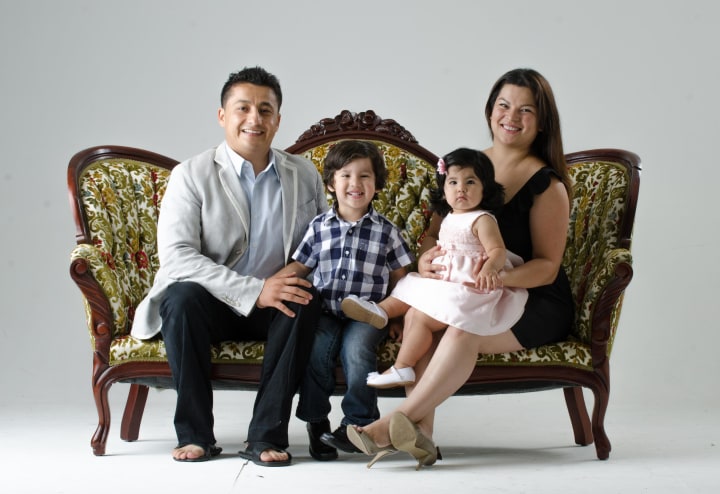For some of the Texas families willing to open up their homes to children who recently crossed the border, the young migrants' dangerous trek to the U.S. is not just images on television but something they could relate to personally.
"My family and I came illegally to the U.S. when I was 3; we used to go back and forth from Guanajuato, Mexico," said Gabriela Hernandez, a second grade teacher who became a citizen in 2004, a few years after her father. Many in her family have either crossed the river or the desert, she said.
Gabriela and her husband Luis, a software engineer, attended a Catholic Charities informational meeting in Ft. Worth on Monday on the steps required to become an international foster parent to an older child, most likely a teen, who recently arrived in the U.S. Many of these young migrants have been fleeing the deadly violence that has gripped countries like Honduras, with the world's highest homicide rate, as well as El Salvador.
Guatemala, though less violent, is very poor, something that Gabriela said she understands. Her father left Mexico for the same reason.
"My father came to work in the U.S. to send money to his family," she said, explaining they came from a very poor region. "I feel a personal attachment to the kids who want to make a difference to work and support their family."
Gabriela's husband Luis also came from Mexico, but not illegally; his grandfather had been in the Bracero worker program and had been able to legally bring his family to the U.S.
The Arlington, Texas couple, who have two children ages 4 and 2, had always thought about adopting children. When they heard of the need for international foster parents to help house the thousands of recently arrived Central American children, they felt it was the right thing to do.
 FAMILY PHOTO
FAMILY PHOTO
"We know it’s going to be a short time, but we believe in family closeness and we have strong Latino roots," said Gabriela. "Even if they are from El Salvador, I think we share many of the same traditions."
When asked what would be one of the first things she would do if she became a foster parent, the Mexican American teacher and mother said she would try to find a restaurant from the child's home country. "They are going to have culture shock, so I think that would help,"she said.
Gabriela also would find out if there was a way to get in touch with the teen's mother back home.
"I would see if there was a way to Skype, or at least send her a picture," she said, adding that she knows mothers worry a lot about their children and would like to find a way to let them know their child was safe.
In the case of 18-year-old Maria Pohlman, a Grapevine, Texas incoming high school senior, she said her mother Victoria MacArthur broached the subject of becoming a foster family because they had relatives who had also come to the United States alone, as children.
"My grandfather came as an orphan from Russia, and he was able to live the American dream," said Pohlman. Her sister's father-in-law, she added, had a similar experience; he came from Vietnam to the U.S. and did not see his family for 40 years.
"It's kind of a chain. There has to be someone who is willing to give you a chance."
"It's kind of a chain," she said. "There has to be someone who is willing to give you a chance."
Pohlman said she and her mother still had questions about the process of becoming international foster parents. They were told the teens could be with them around five years. The process takes months, and Pohlman hoped she would still be home before college so she could be a "sister."
The high school senior said the language issue did not phase her. "I went to Chile on a scholarship and got immersed in the language, plus there's Google Translate," she said, adding, "It’s care and love, and that's more in-depth than language."


No comments:
Post a Comment